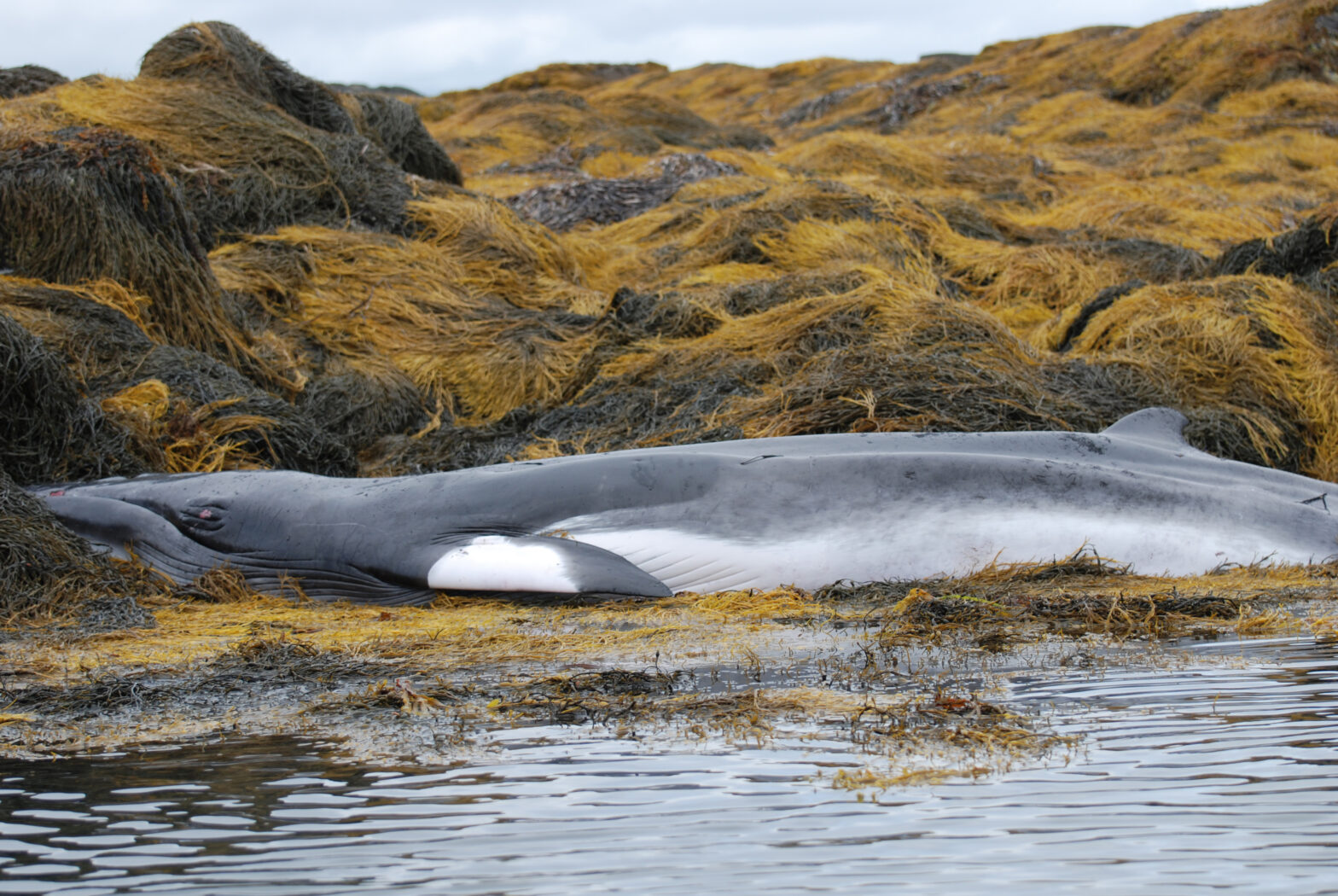New evidence published that European baleen whales may be shifting northwards as a response to climate change
A new paper entitled « An investigation into the effects of climate change on baleen whale distribution in the British Isles », published in the Marine Pollution Bulletin, uses baleen whale strandings data from the British Isles between 1990 and 2020 to explore if there is evidence of distributional change. By dividing the British Isles into six zones from south to north, the authors showed an increase in strandings in the north, whilst in the most southerly zone the rate of strandings stayed the same.
Whilst the impacts of other factors on strandings rates cannot be ruled out, the data suggest a movement north. As described in the paper this is in line with other published reports and predictions indicating a poleward shift of whale species as a response to changing conditions caused by climate change. The dataset is dominated by minke whales and the authors note that it has been predicted that there will be a substantial reduction in the availability of suitable habitat for minke whales in the British Isles by the 2080s, which may have serious implications for minke whale conservation, as the shelf waters around the British Isles are an important summer feeding ground for the North-East Atlantic population. The authors also emphasise the need for further research to explore this further.
The paper is open access and available here https://www.sciencedirect.com/science/article/pii/S0025326X22012474 and used the data collected by the UK’s strandings networks (CSIP and SMASS, which are co-funded by Defra, Welsh Government and Scottish Government) and the records of the Irish Whale and Dolphin Group. The investigation was led by Maria Snell who completed the main analyses as part of her Masters in Global Wildlife Health and Conservation at the Veterinary School of the University of Bristol.
